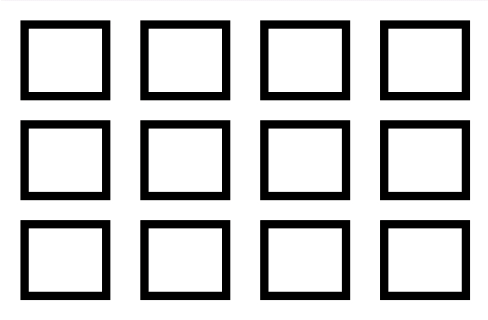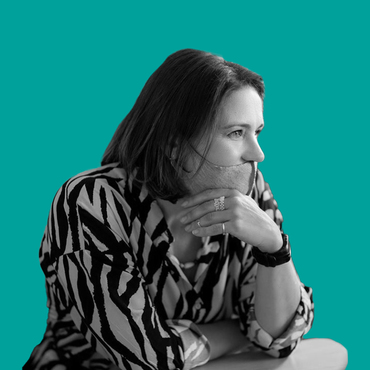“We felt as if we were not in prison, but rather in a normal life”: why education is important for women in places of detention

Kristina Babenko has been working with convicted women for almost two years. She helps them to master new professions and skills: design, work with social networks, website creation, etc. And all of this is in order for convicted women to find a new job after being released from places of detention and never return there again.
The NORLAU project “Supporting Judicial Reform in Ukraine through the full-scale implementation of probation in Ukraine” (NORLAU) worked with convicted women from the government-owned institution “Kachanivska Penitentiary Colony (No. 54)” in Kharkiv. After the start of the Russian full-scale war against Ukraine, Kristina first left Kharkiv for Kremenchuk, and then went abroad. Meanwhile, her female students found themselves without the most necessary things in the first days. According to Kristina, they are still living in basements. She collected humanitarian aid for them, using her scholarship for graduates from the House of Europe.
We talked with Kristina about why education is so important for convicted women, how classes are held in prisons, and how women in the colony experience the war.
How and why did you start educating women in places of detention?
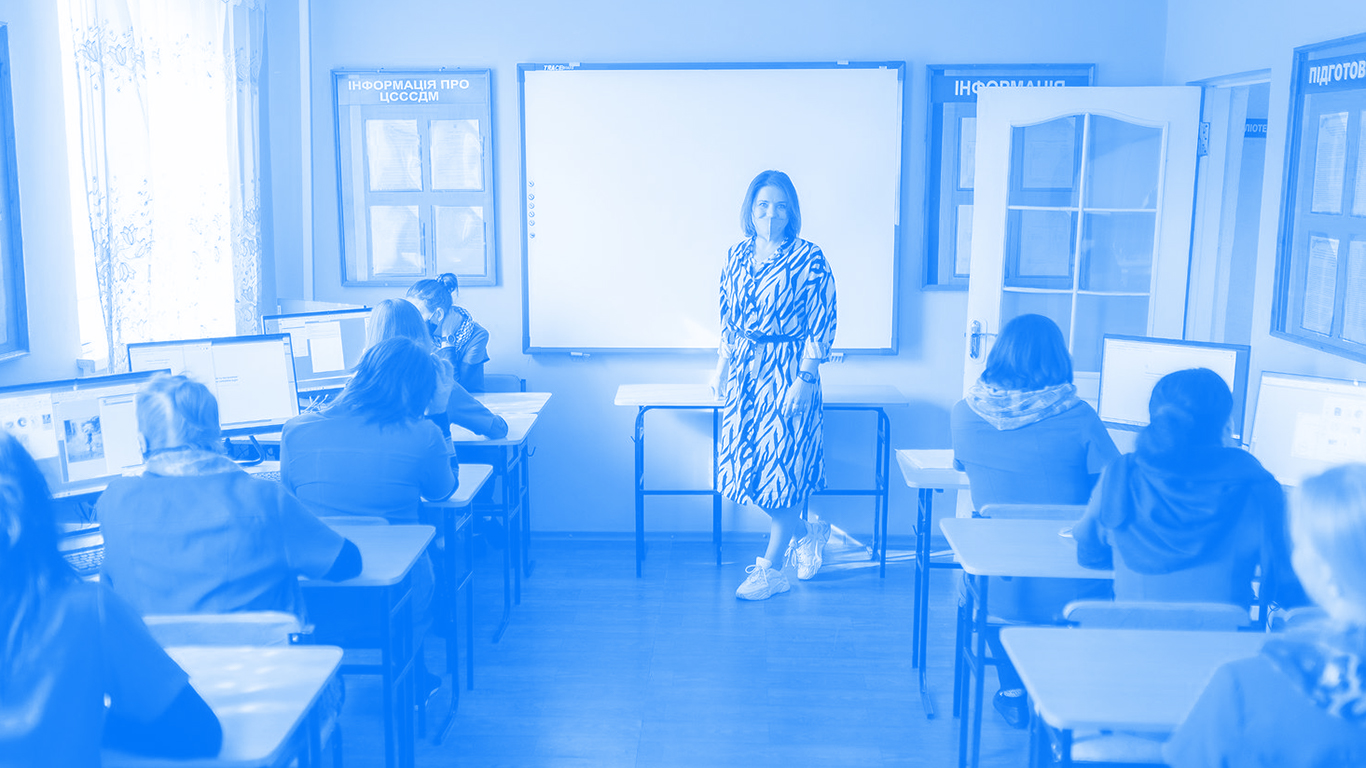
What is the point of the project?
The project is related to the reform of the penitentiary system with the participation of specialists from Norway. Our penitentiary system is isolated: convicts are cut off from society. Imagine a woman who served 15 years in prison. When she went to prison, there were no smartphones yet. So, not only can she not find a job, but she also does not understand how things work now. She does not know what instant messengers are, cannot send a letter by e-mail, or even type a text. The prisoners did not acquire new skills; in prison they worked either as seamstresses or cooks. Due to stigmatisation, it is difficult for them to get a job. So, after a few months without work and money, ex-convicts see no other option than to return to prison. In Ukraine, the percentage of those who return to prison is more than 80%, and in Norway it is less than 20%.
One of the tasks of the project is to minimise the number of those who return, to give them an opportunity to at least somehow adapt before returning to normal life. Namely, to give at least minimal knowledge that will be relevant now and thanks to which they will be able to find remote work at a computer or with a phone. Those convicted of theft or drugs have almost no chance of getting a job, even though many of those convicted of drug-related offenses have never used them. We are talking about ‘droppers’ (those who hide drugs in a certain place, which the buyer learns about ― author’s note). It is difficult to explain this to an employer because the stigma is very strong. However, if ex-prisoners have basic skills, then they can sit at home and earn little by little: run an Instagram page, write posts, or do simple web design.
And we started working with the Kachanivska standard regime penal colony (where the first time convicts of non-serious crimes are usually held ― author’s note) in Kharkiv. I was a little scared because I also had some stereotypes.

How did you make the program? Where did the training begin and how did it take place?
My colleague Serhii Trokhymchuk and I worked on the program for a long time. In the end, we settled on a basic web design program. It was 2020 when the coronavirus pandemic started and almost everything moved online. However, everyone who worked on the project insisted on studying in the classroom and we were able to convince the management of the colony of the need for in-person or mixed training.
There were ten people in one group. Partners from Norway bought ten computers for this project, a separate classroom with the Internet was set up, and we studied on the territory of the colony. It was the administration building and the place where women worked during the day. A supervising officer was necessarily present at the classes.
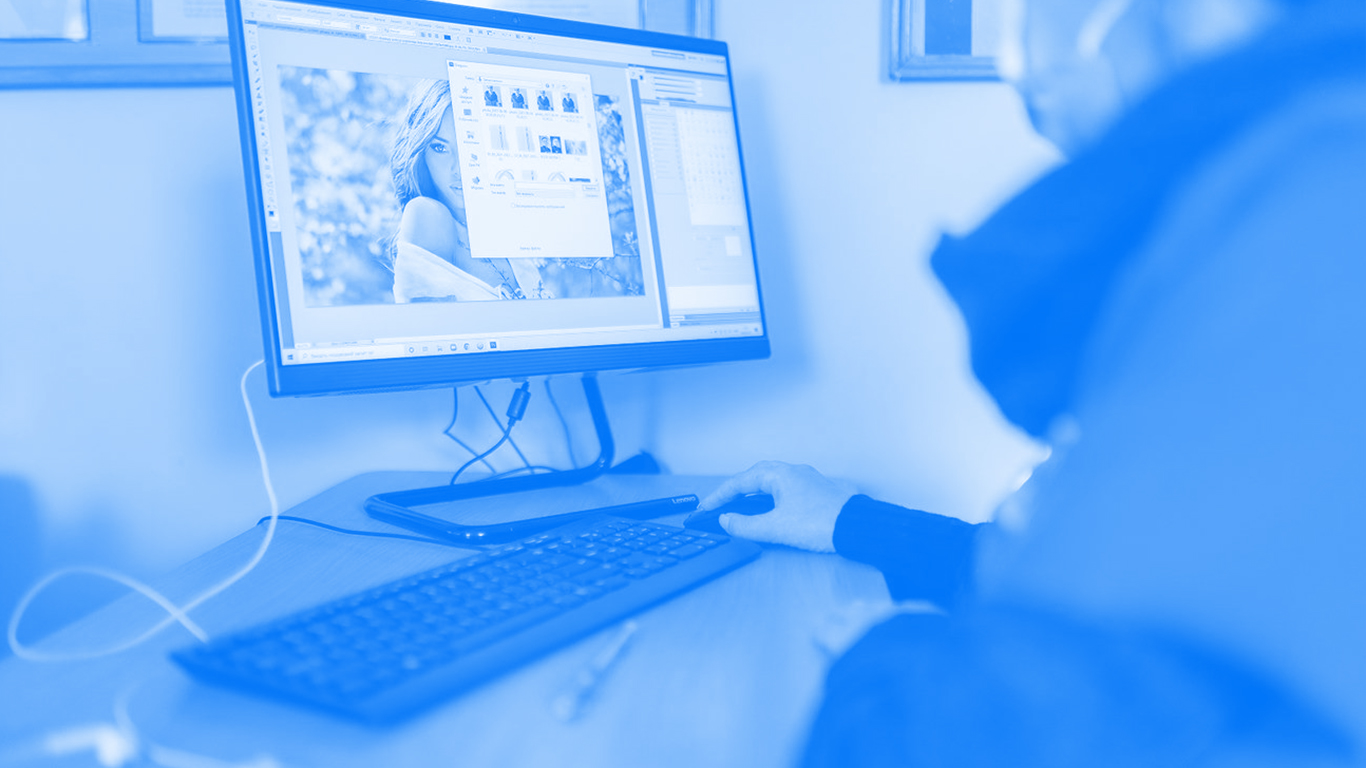
We did not have lectures or practices strictly on schedule; we had an approximate program that was adjusted throughout. At first, I imagined a very specific program for the first group. And when I came, it turned out that most of the participants did not know how to put a capital letter on the keyboard. The first two weeks we worked with basic skills: working with documents, using e-mail and computer programs. Then for two weeks we studied Canva, a web site where you can make simple designs, another two weeks we studied Photoshop, then Figma. So, after finishing the course, the students already knew how to work with three professional programs for web designers.
We created a special course on how to use the programs, as well as made presentations and other materials for classes. However, given that the participants had very poor basic computer skills, it was more effective to explain directly on the computer. So, first we told, and then they worked independently for an hour. The girls really liked studying. They made many postcards and calendars; we then printed them, and they sent them to their relatives.
How was the selection for training? What women did you meet there and what were their stories?
We managed to work with four groups. Three of them graduated, and we started teaching the fourth group on February 2. I was with them as recently as on February 23. At first, we planned to study the program for two months, but each time it took longer. We taught the first group four months, and the second and third ones almost six months, and with the fourth one we started and never finished ― because of the war.
The first group was recruited by the colony administration. There was a requirement from the Norwegian colleagues that the women should have a desire to learn, that is, participate in the project voluntarily. We also asked that they be girls from Kharkiv (so that we could follow their lives), and also that the release date be in the near future. And word of mouth already worked with the following groups: there were a lot of people willing. But the administration chose the participants and approved the lists.
We still communicate with girls from the first and second groups. It turned out that these are ordinary women who sometimes resemble victims more than criminals. Unfortunately, they are treated so badly that I wonder how they still can save their faces. Our system is terrible and they have no one to complain to. At first, of course, they did not really trust me, but when they saw that they were treated normally, they just opened up.
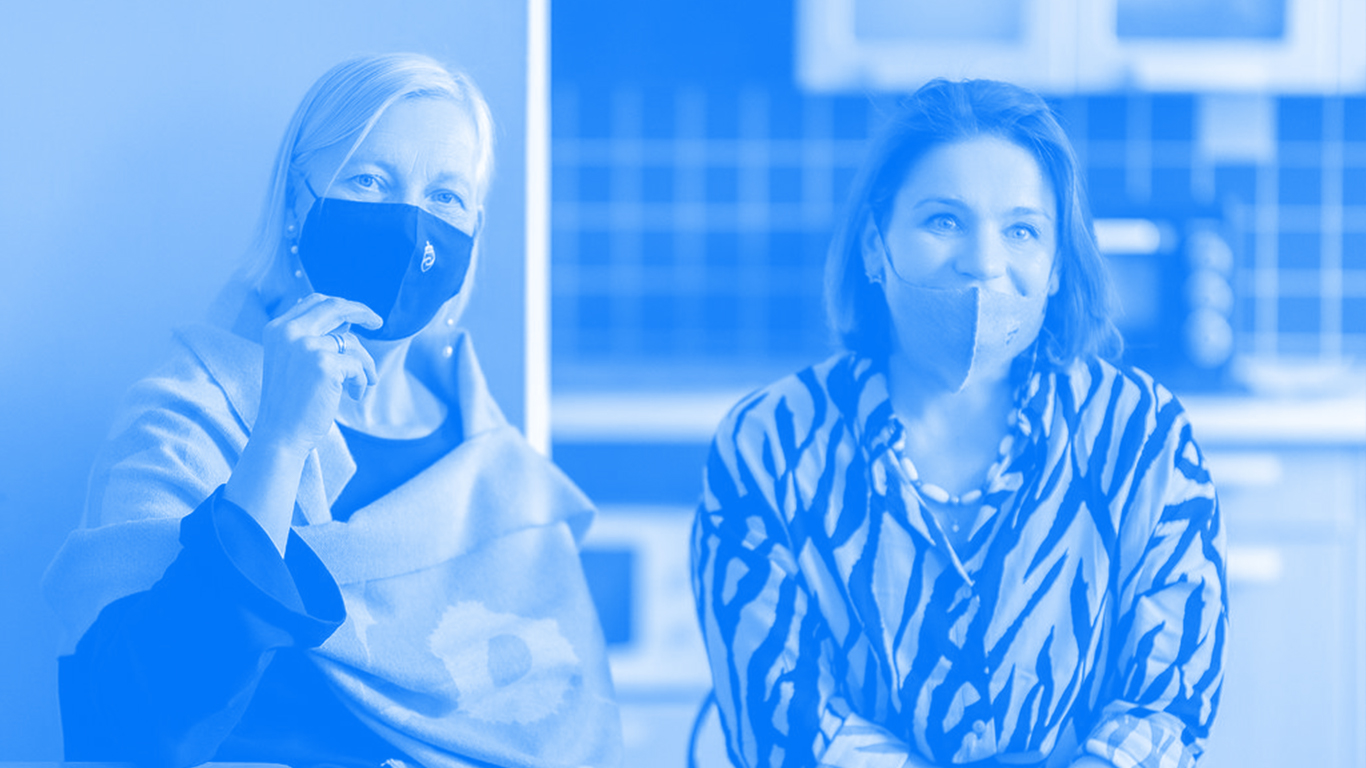
There are many stories of women who committed a crime due to stupidity or hopelessness. Someone was asked to deliver a package, the contents of which they might not even know. However, they took the package because, as single mothers, they really needed money. Ukrainian law provides for 10 years of imprisonment for the sale and distribution of drugs. During this time, one can finish university and give birth to a child who will go to school. And these women are only about to be released.
Almost 40 women became students of the project. It does not seem like much, but if you imagine that without it, those 40 people could have returned to prison again...
When we gave the participants their certificates of the course completion and the Norwegian partners asked: “Why is it important to you?”, they said: “Because we felt as if we were not in prison, but rather in a normal life, like we were normal.”
With the start of the Russian full-scale invasion to Ukraine, you began volunteering for this colony. Tell us what the main needs were and are? How did you find the funds? And how does the colony live during the war?
Those who were still in prison when the war started were the most unlucky. They have been living in the basement in terrible conditions for half a year. But in the first days there were not even the most necessary things: personal hygiene products, water, food, and medicine. People do not even think about this category of people at a critical moment.
My husband and I started buying the most necessary things that could be found in Kharkiv and brought them to the prisoners. With my salary from this project, I decided to buy things more than enough, in general, the things which a person needs for every day. We spent that money, and then I found out about a scholarship from the House of Europe, applied for it, and when I got it, I spent the money on humanitarian aid for imprisoned women. Divchata non-governmental organisation also helped.
I delivered things several more times, until the girls themselves said: “Kristina, that is enough, we do not have a place to store it anymore” (laughs).
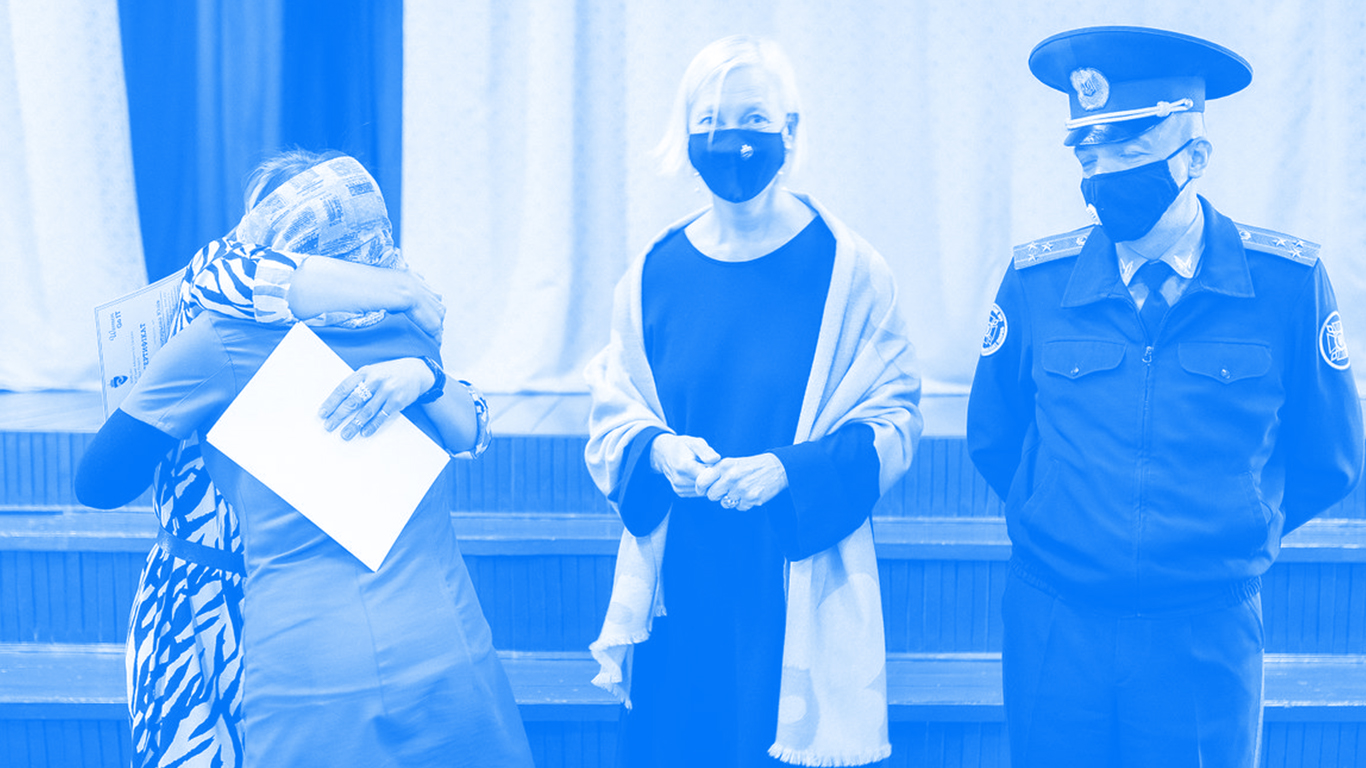
Those whose terms of imprisonment were already ending when I was in Kharkiv, we evacuated to safer cities. When the number of colonies in Ukraine was reduced, prisoners from Odesa and Uman cities, and Luhansk Oblast were brought to the Kharkiv colony. Everyone who is from Luhansk Oblast now cannot return home. And not everyone who is from Donetsk or Zaporizhzhia Oblast is able to return either. But luckily, women are very supportive of each other. For example, one girl was released in June, and she had nowhere to return. The woman with whom she was in the colony offered her to move to her home in Poltava, get a job and help with housing. And we took her there. Now she works as a seamstress, just like in the colony, but in a safe place. She already has the opportunity to transport her family ― daughter and mother ― to Poltava, take them from the demarcation line.
What were the fates of your other female students after the release?
When the first group was graduating, we realised that we needed to find on-the-job trainings for the girls so that they could gain professional experience. We turned to a public organisation that was ready to entrust the design of its web site to our students. The girls worked very enthusiastically. In February, after the on-the-job training, we started looking for a job. But on February 24, the war began. By the way, one girl managed to find a job. She left for Germany, but, unfortunately, did not have the opportunity to take a laptop with her. She lives in a refugee camp. Another girl lives in the occupation in the city of Kreminna, Luhansk Oblast (the interview was recorded at the beginning of September ― author’s note). There are girls living in Kyiv, Chernihiv, and Kharkiv. They were ready to work both emotionally and because they already had the skills. But the war changed everything.
Text: Oksana Semenik
Editing: Iryna Danchenko
Translation into English: Julia Didokha
